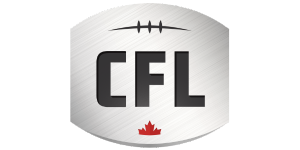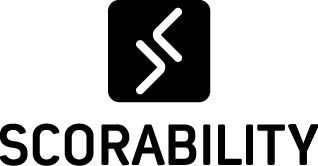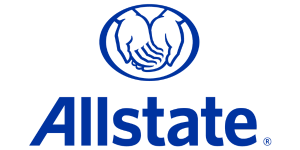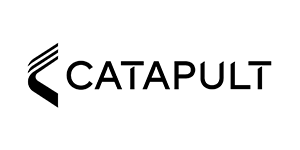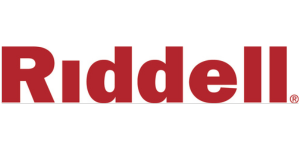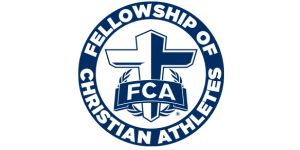
Thinking About Your Legacy?
May 16, 2023
We hope this finds you ready for the summer as preseason camps and games are less than three months away.
As coaches, you may or may not think about your legacy until you get close to the end of your career on the sidelines. A lot of coaches are quite possibly too busy doing the little things on a daily basis that ultimately impact that legacy to think that far ahead. And certainly not all coaches have the same priorities that define that legacy.
Wins. Championships. Graduation rates. Players who go on to play professionally. Players who go on to become coaches themselves. Players who go on to become good husbands and fathers. Those are just a few of the ways that a coach might measure one’s legacy.
But, off the field, we all leave some sort of legacy behind as well. In regards to your financial planning, you can define how you want your life’s work and wealth to continue to benefit the people and causes you love and care for. The reality is “you can’t take it with you”, and this article intends to educate you about that.
Why You May Need a Trust
Mention the term “trust fund” and many people are likely to imagine young slackers living off their family’s wealth or an older generation of parents and grandparents dictating life choices and conditions to their descendants.
Indeed, among the available tools for protecting and transferring assets, trusts may be the most misunderstood. Put simply, a trust can be a flexible and effective way for families to solve their financial issues and manage many types of challenges involving how to transfer assets and wealth to help ensure a lasting legacy.
And trusts aren’t just for ultra-wealthy families with complex holdings. Trusts can help older parents with special needs children who require long-term care as adults. If the grantor is the sole owner of a small business, the grantor may be able to implement a buy/sell arrangement within a trust. Trusts may also allow for a legacy of continuing donations to charities and organizations.
The Basics of Trusts
A “trust fund” is less a financial account than a contract to manage the investment and/or distribution of assets under that contract. Every trust has three components:
- Grantor: The person who transfers assets into the trust.
- Beneficiary: Any person(s) or institution(s) receiving assets or money from the trust.
- Trustee: The legal owner of the trust assets who administers, invests and makes distributions to beneficiaries, based on directions in the trust documents. Trusts can have more than one trustee.
Trusts are “revocable” or “irrevocable.” A revocable living trust lets the grantor make changes, such as adding or removing assets and beneficiaries, as well as other adjustments. A revocable living trust doesn’t offer tax or asset protection advantages during the life of the grantor, but it can be used for incapacity planning, to avoid probate, and to keep assets in further trust upon the death of the grantor.
At your death, your revocable trust becomes irrevocable. Generally, an irrevocable trust cannot be changed or amended. Thus, the terms of the now irrevocable trust allow you to control the future management and distribution of assets for the beneficiaries. Yes, you can control how assets are distributed after your death. But, you can also establish an irrevocable trust during your life. An irrevocable trust created during your lifetime can be used to reduce certain tax liabilities, protect assets from future creditors, leave assets in further trusts for a surviving spouse, children and/or charities, or other estate planning goals you may have.
Choosing a Trustee
Given what’s stake, the choice of trustee can be critical, but not always immediately so. For a revocable trust, for example, you can simply name yourself and/or your spouse as the current trustee(s).
When you are not around to serve as trustee, however, you may want to consider an experienced professional or corporate trustee. Why? Because an irrevocable trust typically involves more sophisticated accounting, decision making and tax planning. Before selecting a trustee for an irrevocable trust, you need to carefully consider who can best serve your needs and those of your beneficiaries in managing the assets held in trust.
Trusts, the Advantages
Some of the advantage of establishing a trust include:
Privacy: A conventional Last Will and Testament becomes a public document upon death and its contents enter the public record during the probate process. However, assets held in trust remain confidential.
Creditor protection: As an independent entity, an irrevocable trust may protect the trust assets from creditor claims, whether yours or your beneficiary’s. Assets in revocable living trusts, however, are still considered your property and are subject to the claims of your creditors.
Tax advantages: Assets placed in an irrevocable trust generally aren’t counted as part of your taxable estate anymore. This can help reduce future estate tax liabilities that may be imposed by federal and state governments.
Charitable giving: Trusts can offer flexible charitable-giving options. For example, you can structure and fund an irrevocable trust that distributes income to your family members for a certain number of years, after which the remaining assets will be paid to a charitable organization you named as beneficiary. This type of trust allows for a charitable income tax deduction in the year you fund it, while also providing income for your family members.
Asset distribution: Transferring assets to family members after death isn’t always simple. Let’s say you own a business and have three children, but only one wants to run the business after you die. Placing a wholly owned business in a trust and purchasing a life insurance policy that the trust owns could allow one beneficiary of the trust to purchase the business from the other beneficiaries, which allows the other beneficiaries to receive the cash proceeds from the insurance policy instead of an interest in the business, without forcing the sale of the business.
Securing Your Legacy
Building, protecting and passing on a legacy involves much more than investing wisely. It requires careful analysis of your objectives, intelligent structuring of your assets and integrated, strategic planning and implementation. A trust can be a valuable tool for ensuring continuity in achieving the financial objectives you envision for your family, your wholly owned business and philanthropic legacy for years and even generations to come.
If you have any questions or want to discuss these options in more detail, please do not hesitate to reach out to us, your own Financial Advisor, or an estate planning attorney.

Keith Norris

Matt Kuerzi
About the Authors
Keith Norris, First Vice President and Financial Advisor, and Matt Kuerzi, Vice President and Financial Advisor, are co-founders of The Derby City Group at Morgan Stanley in Louisville, Kentucky. They have combined over 40 years of experience helping families with their financial planning (1). In 2019, Matt was recognized by Forbes in their first ever list of “Best-In-State Next-Gen Advisors”. He can be reached directly at (502) 394-4094 or [email protected].
Branch address: 4969 U.S. Highway 42, Suite 1200, Louisville, KY 40222
(1) Keith Norris, First Vice President, Financial Advisor, experienced in the financial services industry since 1997. Matt Kuerzi, Vice President, Financial Advisor, experienced in the financial services industry since 2002.
(2) Source: http://www.morganstanley.com/ideas/retierment-savings-vs-education-savings
(3) Source: http://www.irs.gov/retirement-plans/plan-participant-employee/retirement-topics-401k-and-profit-sharing-plan-contribution-limits
(4) Source: http://www.irs.gov/newsroom/tax-benefits-for-education-information-center
(5) Source: https://www.savingforcollege.com/compare-529-plans
The information contained in this article is not a solicitation to purchase or sell investments. Any information presented is general in nature and not intended to provide individually tailored investment advice. The strategies and/or investments referenced may not be appropriate for all investors as the appropriateness of a particular investment or strategy will depend on an investor’s individual circumstances and objectives. Investing involves risks and there is always the potential of losing money when you invest.
Tax laws are complex and subject to change. Morgan Stanley Smith Barney LLC (“Morgan Stanley”), its affiliates and Morgan Stanley Financial Advisors and Private Wealth Advisors do not provide tax or legal advice and are not “fiduciaries” (under the Investment Advisers Act of 1940, ERISA, the Internal Revenue Code or otherwise) with respect to the services or activities described herein except as otherwise provided in writing by Morgan Stanley and/or as described at www.morganstanley.com/disclosures/dol. Individuals are encouraged to consult their tax and legal advisors (a) before establishing a retirement plan or account, and (b) regarding any potential tax, ERISA and related consequences of any investments made under such plan or account.
Source: Forbes.com (July, 2021). Top Next-Gen Wealth Advisors. SHOOK considered advisors born in 1981 or later with a minimum 4 years as an advisor. Advisors have: built their own practices and lead their teams; joined teams and are viewed as future leadership; or a combination of both. Ranking algorithm is based on qualitative measures: telephone and in-person interviews, client retention, industry experience, credentials, review of compliance records, firm nominations; and quantitative criteria, such as: assets under management and revenue generated for their firms. Investment performance is not a criterion because client objectives and risk tolerances vary, and advisors rarely have audited performance reports. Rankings are based on the opinions of SHOOK Research, LLC, and are not indicative of future performance or representative of any one client’s experience. Neither Morgan Stanley Smith Barney LLC nor its Financial Advisors or Private Wealth Advisors pay a fee to Forbes or SHOOK Research in exchange for the ranking. For more information, see www.SHOOKresearch.com.
Asset Allocation does not assure a profit or protect against loss in declining financial markets.
The views expressed herein are those of the author and do not necessarily reflect the views of Morgan Stanley Wealth Management or its affiliates. All opinions are subject to change without notice. Neither the information provided nor any opinion expressed constitutes a solicitation for the purchase or sale of any security. Past performance is no guarantee of future results.
Morgan Stanley Smith Barney LLC offers a wide array of brokerage and advisory services to its clients, each of which may create a different type of relationship with different obligations to you. Please visit us at http://www.morganstanleyindividual.com or consult with your Financial Advisor to understand these differences.
Morgan Stanley Smith Barney LLC. Member SIPC.
CRC 4841404 7/2022
For more information about the AFCA, visit www.AFCA.com. For more interesting articles, check out The Insider and subscribe to our weekly email.
If you are interested in more in-depth articles and videos, please become an AFCA member. You can find out more information about membership and specific member benefits on the AFCA Membership Overview page. If you are ready to join, please fill out the AFCA Membership Application.
« « Previous PostNext Post » »
We hope this finds you ready for the summer as preseason camps and games are less than three months away.
As coaches, you may or may not think about your legacy until you get close to the end of your career on the sidelines. A lot of coaches are quite possibly too busy doing the little things on a daily basis that ultimately impact that legacy to think that far ahead. And certainly not all coaches have the same priorities that define that legacy.
Wins. Championships. Graduation rates. Players who go on to play professionally. Players who go on to become coaches themselves. Players who go on to become good husbands and fathers. Those are just a few of the ways that a coach might measure one’s legacy.
But, off the field, we all leave some sort of legacy behind as well. In regards to your financial planning, you can define how you want your life’s work and wealth to continue to benefit the people and causes you love and care for. The reality is “you can’t take it with you”, and this article intends to educate you about that.
Why You May Need a Trust
Mention the term “trust fund” and many people are likely to imagine young slackers living off their family’s wealth or an older generation of parents and grandparents dictating life choices and conditions to their descendants.
Indeed, among the available tools for protecting and transferring assets, trusts may be the most misunderstood. Put simply, a trust can be a flexible and effective way for families to solve their financial issues and manage many types of challenges involving how to transfer assets and wealth to help ensure a lasting legacy.
And trusts aren’t just for ultra-wealthy families with complex holdings. Trusts can help older parents with special needs children who require long-term care as adults. If the grantor is the sole owner of a small business, the grantor may be able to implement a buy/sell arrangement within a trust. Trusts may also allow for a legacy of continuing donations to charities and organizations.
The Basics of Trusts
A “trust fund” is less a financial account than a contract to manage the investment and/or distribution of assets under that contract. Every trust has three components:
- Grantor: The person who transfers assets into the trust.
- Beneficiary: Any person(s) or institution(s) receiving assets or money from the trust.
- Trustee: The legal owner of the trust assets who administers, invests and makes distributions to beneficiaries, based on directions in the trust documents. Trusts can have more than one trustee.
Trusts are “revocable” or “irrevocable.” A revocable living trust lets the grantor make changes, such as adding or removing assets and beneficiaries, as well as other adjustments. A revocable living trust doesn’t offer tax or asset protection advantages during the life of the grantor, but it can be used for incapacity planning, to avoid probate, and to keep assets in further trust upon the death of the grantor.
At your death, your revocable trust becomes irrevocable. Generally, an irrevocable trust cannot be changed or amended. Thus, the terms of the now irrevocable trust allow you to control the future management and distribution of assets for the beneficiaries. Yes, you can control how assets are distributed after your death. But, you can also establish an irrevocable trust during your life. An irrevocable trust created during your lifetime can be used to reduce certain tax liabilities, protect assets from future creditors, leave assets in further trusts for a surviving spouse, children and/or charities, or other estate planning goals you may have.
Choosing a Trustee
Given what’s stake, the choice of trustee can be critical, but not always immediately so. For a revocable trust, for example, you can simply name yourself and/or your spouse as the current trustee(s).
When you are not around to serve as trustee, however, you may want to consider an experienced professional or corporate trustee. Why? Because an irrevocable trust typically involves more sophisticated accounting, decision making and tax planning. Before selecting a trustee for an irrevocable trust, you need to carefully consider who can best serve your needs and those of your beneficiaries in managing the assets held in trust.
Trusts, the Advantages
Some of the advantage of establishing a trust include:
Privacy: A conventional Last Will and Testament becomes a public document upon death and its contents enter the public record during the probate process. However, assets held in trust remain confidential.
Creditor protection: As an independent entity, an irrevocable trust may protect the trust assets from creditor claims, whether yours or your beneficiary’s. Assets in revocable living trusts, however, are still considered your property and are subject to the claims of your creditors.
Tax advantages: Assets placed in an irrevocable trust generally aren’t counted as part of your taxable estate anymore. This can help reduce future estate tax liabilities that may be imposed by federal and state governments.
Charitable giving: Trusts can offer flexible charitable-giving options. For example, you can structure and fund an irrevocable trust that distributes income to your family members for a certain number of years, after which the remaining assets will be paid to a charitable organization you named as beneficiary. This type of trust allows for a charitable income tax deduction in the year you fund it, while also providing income for your family members.
Asset distribution: Transferring assets to family members after death isn’t always simple. Let’s say you own a business and have three children, but only one wants to run the business after you die. Placing a wholly owned business in a trust and purchasing a life insurance policy that the trust owns could allow one beneficiary of the trust to purchase the business from the other beneficiaries, which allows the other beneficiaries to receive the cash proceeds from the insurance policy instead of an interest in the business, without forcing the sale of the business.
Securing Your Legacy
Building, protecting and passing on a legacy involves much more than investing wisely. It requires careful analysis of your objectives, intelligent structuring of your assets and integrated, strategic planning and implementation. A trust can be a valuable tool for ensuring continuity in achieving the financial objectives you envision for your family, your wholly owned business and philanthropic legacy for years and even generations to come.
If you have any questions or want to discuss these options in more detail, please do not hesitate to reach out to us, your own Financial Advisor, or an estate planning attorney.
 Keith Norris |
 Matt Kuerzi |
About the Authors
Keith Norris, First Vice President and Financial Advisor, and Matt Kuerzi, Vice President and Financial Advisor, are co-founders of The Derby City Group at Morgan Stanley in Louisville, Kentucky. They have combined over 40 years of experience helping families with their financial planning (1). In 2019, Matt was recognized by Forbes in their first ever list of “Best-In-State Next-Gen Advisors”. He can be reached directly at (502) 394-4094 or [email protected].
Branch address: 4969 U.S. Highway 42, Suite 1200, Louisville, KY 40222
(1) Keith Norris, First Vice President, Financial Advisor, experienced in the financial services industry since 1997. Matt Kuerzi, Vice President, Financial Advisor, experienced in the financial services industry since 2002.
(2) Source: http://www.morganstanley.com/ideas/retierment-savings-vs-education-savings
(3) Source: http://www.irs.gov/retirement-plans/plan-participant-employee/retirement-topics-401k-and-profit-sharing-plan-contribution-limits
(4) Source: http://www.irs.gov/newsroom/tax-benefits-for-education-information-center
(5) Source: https://www.savingforcollege.com/compare-529-plans
The information contained in this article is not a solicitation to purchase or sell investments. Any information presented is general in nature and not intended to provide individually tailored investment advice. The strategies and/or investments referenced may not be appropriate for all investors as the appropriateness of a particular investment or strategy will depend on an investor’s individual circumstances and objectives. Investing involves risks and there is always the potential of losing money when you invest.
Tax laws are complex and subject to change. Morgan Stanley Smith Barney LLC (“Morgan Stanley”), its affiliates and Morgan Stanley Financial Advisors and Private Wealth Advisors do not provide tax or legal advice and are not “fiduciaries” (under the Investment Advisers Act of 1940, ERISA, the Internal Revenue Code or otherwise) with respect to the services or activities described herein except as otherwise provided in writing by Morgan Stanley and/or as described at www.morganstanley.com/disclosures/dol. Individuals are encouraged to consult their tax and legal advisors (a) before establishing a retirement plan or account, and (b) regarding any potential tax, ERISA and related consequences of any investments made under such plan or account.
Source: Forbes.com (July, 2021). Top Next-Gen Wealth Advisors. SHOOK considered advisors born in 1981 or later with a minimum 4 years as an advisor. Advisors have: built their own practices and lead their teams; joined teams and are viewed as future leadership; or a combination of both. Ranking algorithm is based on qualitative measures: telephone and in-person interviews, client retention, industry experience, credentials, review of compliance records, firm nominations; and quantitative criteria, such as: assets under management and revenue generated for their firms. Investment performance is not a criterion because client objectives and risk tolerances vary, and advisors rarely have audited performance reports. Rankings are based on the opinions of SHOOK Research, LLC, and are not indicative of future performance or representative of any one client’s experience. Neither Morgan Stanley Smith Barney LLC nor its Financial Advisors or Private Wealth Advisors pay a fee to Forbes or SHOOK Research in exchange for the ranking. For more information, see www.SHOOKresearch.com.
Asset Allocation does not assure a profit or protect against loss in declining financial markets.
The views expressed herein are those of the author and do not necessarily reflect the views of Morgan Stanley Wealth Management or its affiliates. All opinions are subject to change without notice. Neither the information provided nor any opinion expressed constitutes a solicitation for the purchase or sale of any security. Past performance is no guarantee of future results.
Morgan Stanley Smith Barney LLC offers a wide array of brokerage and advisory services to its clients, each of which may create a different type of relationship with different obligations to you. Please visit us at http://www.morganstanleyindividual.com or consult with your Financial Advisor to understand these differences.
Morgan Stanley Smith Barney LLC. Member SIPC.
CRC 4841404 7/2022
For more information about the AFCA, visit www.AFCA.com. For more interesting articles, check out The Insider and subscribe to our weekly email.
If you are interested in more in-depth articles and videos, please become an AFCA member. You can find out more information about membership and specific member benefits on the AFCA Membership Overview page. If you are ready to join, please fill out the AFCA Membership Application.
